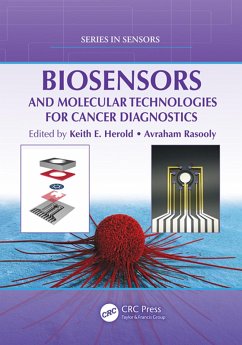Bridging the gap between research and clinical application, this volume explores the use of biosensors as effective alternatives to the current standard methods in cancer diagnosis and detection. It describes the major aspects involved in detecting and diagnosing cancer as well as the basic elements of biosensors and their applications in detection and diagnostics. Making biosensor technology more accessible to molecular biologists, oncologists, pathologists, and engineers, the book advances the integration of this technology into mainstream clinical practice.
Dieser Download kann aus rechtlichen Gründen nur mit Rechnungsadresse in A, B, BG, CY, CZ, D, DK, EW, E, FIN, F, GR, HR, H, IRL, I, LT, L, LR, M, NL, PL, P, R, S, SLO, SK ausgeliefert werden.


